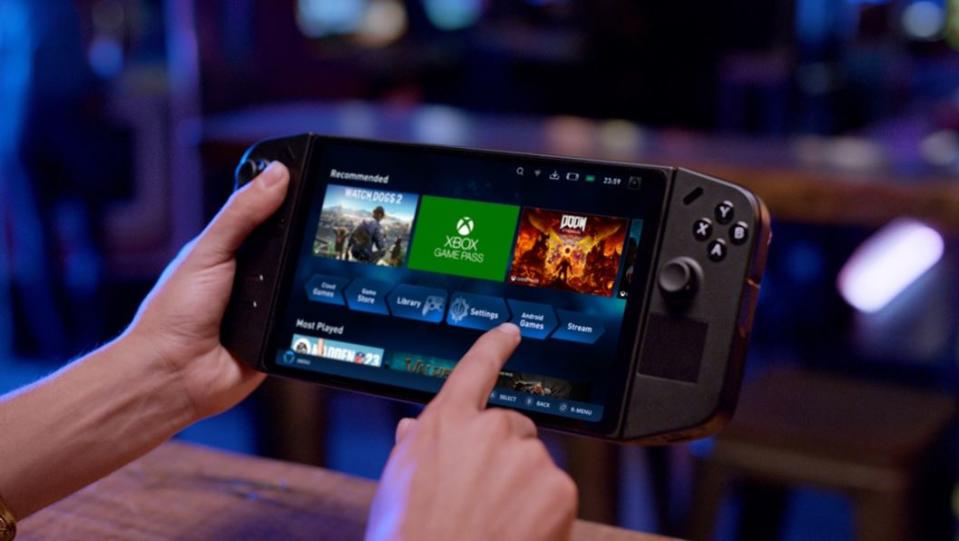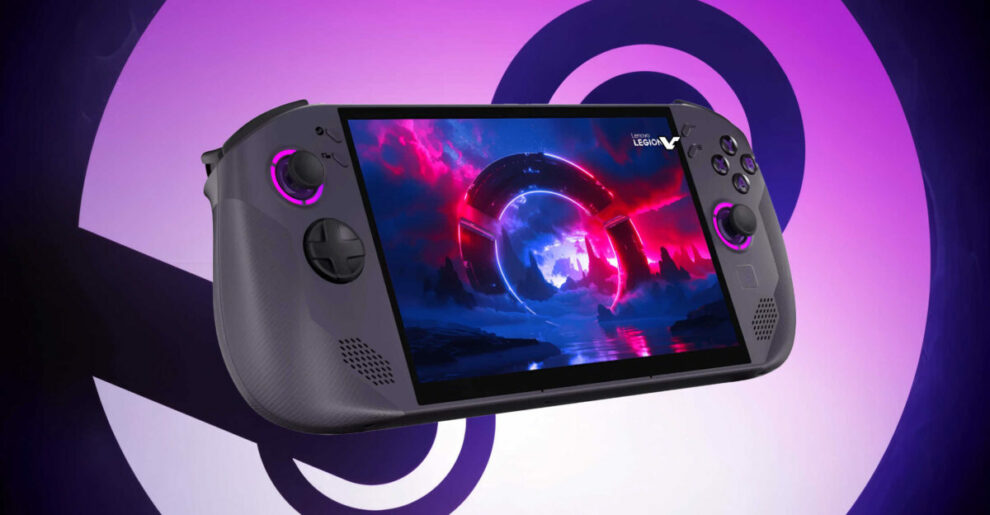A groundbreaking partnership between gaming giants appears to be taking shape as evidence mounts for a Lenovo-manufactured handheld gaming PC running Valve’s SteamOS. The revelation comes ahead of a highly anticipated AMD and Lenovo event scheduled for January 7 at CES 2024, featuring unprecedented attendance from key figures at both Valve and Microsoft.
The surprise announcement that Valve’s Pierre-Loup Griffais and Microsoft’s Jason Ronald will attend the event has sent waves through the gaming community. Griffais, a prominent figure in Steam Deck’s development and an architect of its Proton compatibility layer, has historically focused exclusively on Valve’s Linux-based Steam Deck, making his presence at an event for a Windows-based handheld particularly noteworthy.
Adding fuel to the speculation, recent leaks from industry insider Evan Blass showcase images of a mysterious black Lenovo handheld device sporting the Steam logo on one of its buttons. This leak coincides with Valve’s recent update to its branding guidelines, which introduced new “Powered by SteamOS” logos, suggesting a strategic expansion of the Steam ecosystem beyond Valve’s hardware.

While some might rush to label this as the Steam Deck 2, the reality appears more nuanced. Valve has previously stated its intention to develop a true Steam Deck successor only when significant performance improvements become possible. Instead, this collaboration seems to represent a new direction in the handheld gaming market, potentially combining Lenovo’s hardware expertise with Valve’s software prowess.
The technical specifications remain under wraps, but industry analysts are already speculating about the device’s capabilities. The current Lenovo Legion Go utilizes the AMD Ryzen Z1 Extreme chip, which outperforms the processors found in both versions of the Steam Deck. With AMD’s confirmation that its next-generation Ryzen Z2 Extreme will debut early next year, the timing suggests this new device could feature cutting-edge processing power.
What makes this potential collaboration particularly intriguing is the marriage of superior hardware with SteamOS’s efficient performance and Proton’s compatibility layer. This combination could address one of the main criticisms of current Windows-based handhelds – their operating system overhead – while maintaining compatibility with a vast library of PC games.
The timing of this revelation is particularly significant given the evolving landscape of handheld gaming PCs. Since the launch of the Asus ROG Ally, numerous manufacturers have hosted similar events featuring representatives from AMD and Microsoft. However, Valve’s participation in this upcoming presentation marks a departure from previous industry patterns and could signal a shift in the company’s strategy regarding third-party hardware.
This development could represent a major evolution in Valve’s approach to the handheld gaming market. Rather than maintaining exclusive control over SteamOS hardware, the company appears to be embracing partnerships that could expand the reach of its software ecosystem. This strategy could benefit both consumers and developers by establishing a more standardized platform for handheld PC gaming.
The gaming community won’t have to wait long for confirmation, as the event is scheduled for early January. Lenovo has promised hands-on opportunities with the “latest Lenovo Legion Go lineup,” suggesting that whatever device is revealed will be ready for public scrutiny. The presence of both Valve and Microsoft representatives also hints at potential discussions about the future of gaming operating systems and cross-platform compatibility.
This collaborative approach could mark the beginning of a new era in handheld gaming, where hardware manufacturers and software developers work together to create more refined and capable devices. As the lines between traditional PC gaming and portable play continue to blur, this partnership might set new standards for what gamers can expect from their mobile gaming experiences.
















Add Comment